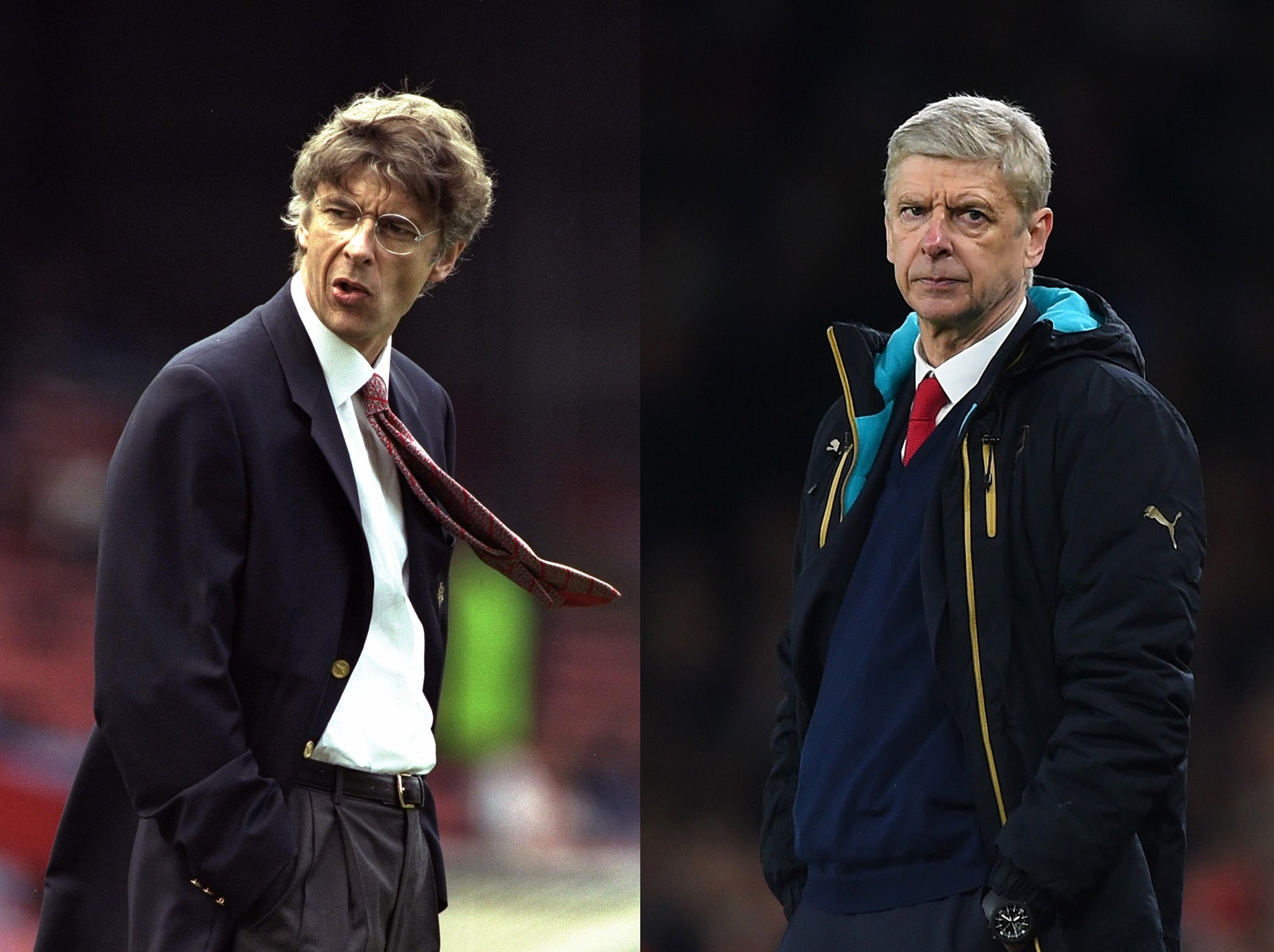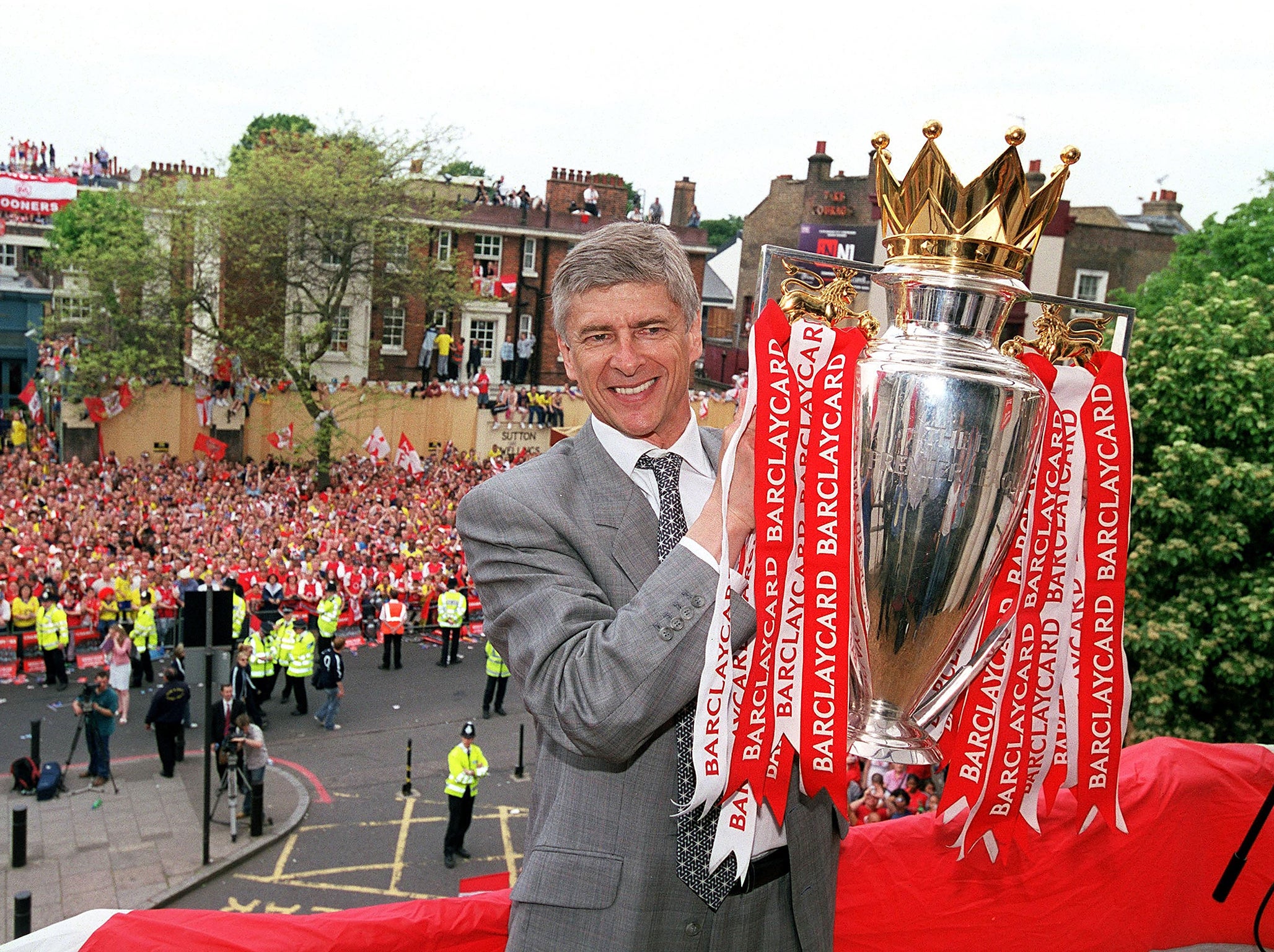Arsenal manager Arsene Wenger still learning to adjust in a society where everyone knows more about everything
The veteran manager has a unique take on why his own popularity among Arsenal fans has decreased so dramatically over the years

When Arsenal go to Crystal Palace on Thursday night it will be Arsene Wenger’s 810th Premier League match in the job, drawing level with the record Sir Alex Ferguson set with Manchester United. Wenger’s first game, away at Blackburn Rovers was in October 1996, more than 21 years ago.
So what has changed since then? Not the “core of the game”, Wenger said at his press conference, but rather “the décor” of the job. The behaviour of players on the team bus, who have replaced communal sing-songs with each listening to his own music.
But with Wenger there is always another level of analysis, a dip into one of his favourite hobbies, amateur sociology. The real difference in managing Arsenal from 1996-97 and 2017-18, Wenger said, was to do with the democratisation of knowledge and the decline in respect for expertise. “What has changed, is the society.”
This is the trend that Wenger points to – everyone having an opinion, whether qualified or not - more than anything else. And it is why he thinks jobs like his are harder, because the expert is “questioned” more than ever before. He even used the example of a doctor, who suffers from the same dynamic as the veteran football manager, his words no longer taken on trust.
“We live in a society that is more demanding, that is more opinionated. The overall problem in Europe is that the respect for basic things has been lost, or is less strong that it was 20 years ago. As well you have positive things: people are better informed, people are better educated. People have more knowledge of the game. You have to think of balance.”
But now everyone knows more about everything, what is the value in knowing a lot about anything? This decade has seen a collapse in respect for almost all of Britain’s most trusted professions, a trend that reached its climax with Michael Gove saying that the British people had “had enough of experts” during the Brexit campaign last June. Gove’s view was validated at the ballot box, 52-48, in a result that devastated the Arsenal manager.

Wenger has been in this profession for more than 30 years and in this particular job for 21. He is one of its most successful and respected practitioners of all time. Away from all that, he has a master’s degree in economics from the University of Strasbourg. If he did not believe in the primacy of expertise, who else would?
Eager to show that can see outside football’s bubble, Wenger described how the relationship between doctors and patients has changed. Now patients do not go to the doctor to learn, but to get their own opinions validated.
“There is more suspicion now,” Wenger said. “You go to a doctor and he is more questioned than he was 20 years ago. 20 years ago, you go to a doctor, he says ‘you have that’, you say ‘Ok, I will go home and do that.’ Today, when you go to see the doctor, you have read before on the internet. And he has to convince you that you have not necessarily what you think you have. So that basically means that you are questioned more. In every single job, people are questioned more.”
That is how Wenger explains his own experience, and the decrease in his own popularity among Arsenal fans over the years. “I am questioned more, of course,” he said, warning that negativity erodes the values he has worked so hard on over his career. “That means society is less stable. At the end of the day, it is still about values. And the carrier of the values is the manager, and if you have no stability, these values are questioned.”
For Wenger that is a serious problem. “I believe I stayed here because I am at a club where I can identify with the values that I am in this game for. The values are more important than all the rest.” But all he can do is focus on the job that he loves, that he still believes gives him the best way to a fulfilling life.
“The ultimate goal is to make people happy. The proudest thing you can have is to make people happy. Unfortunately you don't always manage to do it, but you try to do it.”

Will Wenger ever be able to give the fans what they want and win them a fourth Premier League title? Probably not. But whatever happens on the pitch for the rest of this season and next one, the last of Wenger’s contract, it is his work with the players every day, helping them to be the best they can be, that matters the most to him. Even if all the deference and respect he used to enjoy from fans has eroded away.
“The second thing I believe, what is the most important thing that people never talk about, is to believe in human beings. Despite all this, when you’re such a long time in the job, you’re not naïve. You know all the strengths and weaknesses, and how sometimes people can be selfish or mean. But you still have to believe that there is a light in every human being that you can get out.”
Join our commenting forum
Join thought-provoking conversations, follow other Independent readers and see their replies
Comments